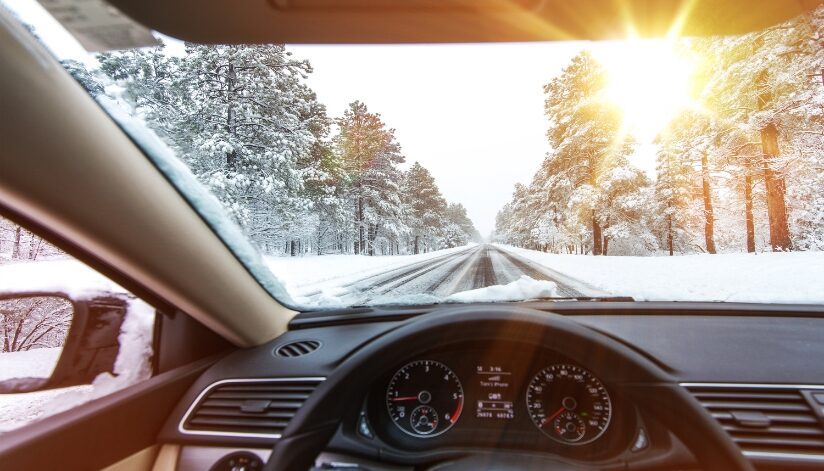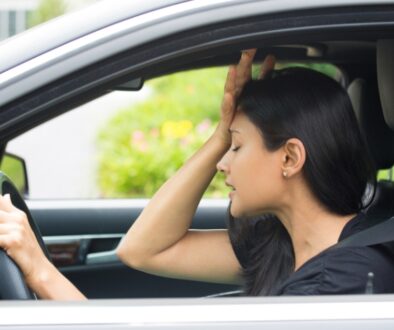Preparing For Winter Driving Before The First Snowfall
By Howard Eglash, Personal Injury Attorney
As temperatures begin to drop, daylight shortens, and early-season weather shifts begin to affect our driving conditions. Even when snow has not yet arrived, the transition from fall to winter brings its own driving hazards—morning frost, wet leaves, freezing rain, and colder pavement temperatures that reduce tire traction. Many drivers are caught off guard, especially those who assume winter driving risks start only after the first major snowfall.
For drivers in La Crosse, Sparta, and surrounding communities, preparing early can reduce your chances of being involved in an accident and help protect your rights if one occurs. Taking proactive steps now—before the first real winter storm—can make a meaningful difference in your safety, your insurance coverage, and your ability to recover compensation if someone else’s negligence causes a crash.
Why Early-Season Weather Creates Hidden Road Risks
Before snowfall begins, road conditions can already be dangerous for several reasons:
- Freezing Temperatures Create Frost: Overnight frost on bridges, overpasses, and shaded roads can mimic black ice, causing sudden skidding.
- Wet Leaves Reduce Traction: Fallen leaves become slick when wet and reduce tire grip, especially on curves, hills, and rural roads.
- Reduced Daylight Hours Affect Visibility: Dusk arrives earlier in November, and drivers may have difficulty spotting pedestrians, cyclists, or wildlife.
- Cold Pavement Lowers Tire Performance: Summer or worn tires can lose traction long before any snow actually falls.
These conditions catch drivers by surprise because they do not look dangerous at first glance. This is why preparing ahead of time is so important.
Check Your Vehicle Before Winter Arrives
A few basic inspections can make your vehicle safer for early-season weather:
Inspect Your Tires
Tires play a crucial role in avoiding early-season accidents. Check:
- Tread depth (replace if less than 4/32″)
- Tire pressure (cold weather lowers pressure)
- Wear patterns that indicate alignment issues
Even before snow arrives, consider installing winter tires. They grip cold pavement better than all-season tires, reducing stopping distances and improving control.
Replace Wiper Blades And Refill Washer Fluid
Dirty fall debris, early frost, and foggy windows can reduce visibility. Make sure:
• Wiper blades are not streaking
• Washer fluid is rated for freezing temperatures
• Defrosters and heaters work properly
Test Your Battery
Batteries weaken in cold weather, and early failures are common in November. A simple test can prevent a breakdown on the road.
Check Lights And Signals
With shorter daylight hours, working headlights and taillights are essential. Replace dim bulbs before winter officially begins.
Review Your Auto Insurance Coverage
One of the most important steps before winter is understanding your insurance policy. Many drivers only discover coverage gaps after an accident—when it’s too late.
Confirm You Have Adequate Liability Coverage
Wisconsin requires minimum liability coverage, but these minimums often fall short in real accidents. Consider increasing limits to protect yourself from unexpected costs.
Add Or Confirm Collision Coverage
Collision coverage pays for vehicle damage after an accident, regardless of fault. Drivers who decline collision coverage often face expensive repairs after early-season crashes.
Ensure You Have Uninsured/Underinsured Motorist Coverage
This coverage protects you when the at-fault driver does not have enough insurance. It is one of the most important protections you carry in Wisconsin.
Consider Rental Car Coverage
If your car ends up in a repair shop after a winter crash, rental coverage saves significant out-of-pocket costs.
Reviewing your insurance carefully helps ensure you are not left covering expenses caused by another driver’s negligence.
What To Do If Early-Season Road Conditions Cause An Accident
Even with preparation, accidents still happen. Early-season crashes often involve:
- Rear-end collisions caused by slippery pavement
- Sideswipe accidents from lane drifting in wet or frosty conditions
- Multi-vehicle crashes on highways due to sudden slowdowns
- Motorcycle or bike accidents when pavement becomes slick
If you are involved in a crash, follow these steps to protect your health and your legal rights:
- Move to a safe location and turn on hazard lights.
- Call police to file an official report.
- Document the scene with photos, including road conditions.
- Exchange information with all drivers involved.
- Seek medical attention, even if symptoms seem minor.
- Notify your insurance company promptly.
- Avoid giving a recorded statement to the other driver’s insurer without legal advice.
Even when weather contributes to a crash, another driver may still be at fault if they were speeding, distracted, following too closely, or driving too fast for conditions.
Liability In Early-Season Accidents
Drivers sometimes assume that weather makes no one responsible for a crash. But legally, that is not true.
Wisconsin requires all drivers to adjust their behavior to road conditions—even when those conditions are unexpected. This means a driver may still be liable if they:
- Drove too fast for conditions
- Failed to maintain a proper lookout
- Followed too closely
- Failed to keep their vehicle under control
- Drove with unsafe tires or equipment
Insurance companies often try to blame weather to avoid paying claims. Working with a personal injury attorney helps ensure that fault is properly investigated and that your rights are protected.
Steps You Can Take Now To Stay Safe
Before the first snowfall, you can reduce your risk dramatically by taking simple precautions:
- Slow down on rural roads and shaded areas.
- Increase following distance.
- Clear frost and fog completely before driving.
- Keep an emergency kit in your vehicle.
- Schedule car maintenance now rather than mid-winter.
Small steps can make a big difference in preventing early-season accidents.
If You Are Injured In A Fall Weather Crash, Bosshard Parke Can Help
Even before winter fully arrives, road conditions in Wisconsin can become hazardous. If you or someone you love is injured in a collision caused by unsafe road conditions or another driver’s negligence, you do not have to navigate the insurance process alone.
Bosshard Parke helps drivers in La Crosse, Sparta, and western Wisconsin understand their rights, negotiate fair compensation, and pursue claims when needed. Early legal guidance can make a significant difference in protecting your health and financial recovery.
Disclaimer: This blog post is for informational purposes only and does not constitute legal advice. For personalized guidance, please consult an attorney at Bosshard Parke.
Article by Howard Eglash, personal injury attorney at Bosshard Parke Ltd. For more information, contact him at 608-782-1469.





